The best types of credit cards for bad credit are secured credit cards and/or prepaid credit cards. With these cards, you provide a deposit, so approval is easy, and secured cards can even help rebuild your credit score.
With sufficient time and responsible use of your secured or prepaid card, you should eventually qualify for a typical credit card that offers more perks and privileges.
Below, you'll find details on the best secured and prepaid cards available in Canada, how they can help, and plenty of other details.
Never miss an amazing deal again + get our bonus 250+ page eBook for FREE. Join 50,000 other Canadians who receive our weekly newsletter – learn more.
Best credit cards for bad credit for March 2026
But first, here are our best credit cards for poor credit:
| Credit Cards For Bad Credit | Card Type | Annual Fee | Features | Apply Now |
|---|---|---|---|---|
| Neo Secured Mastercard | Secured | $95.88 | * Offers rewards on purchases * Low $50 security deposit | Apply Now |
| Neo Secured World Elite Mastercard | Secured | $125 | * Up to 7% cash back * Includes 12 types of insurance | Apply Now |
| Home Trust Secured Visa Card | Secured | $0 | * Lower 2% foreign transaction fee * Helps rebuild your credit | Apply Now |
| KOHO Essential Mastercard | Prepaid | $48 | * 1% cash back on groceries, restaurants, and transportation * Lower foreign transaction fee of 1.5% | Apply Now |
| BMO CashBack Mastercard for students | Student | $0 | * 3% cash back on groceries (up to $500 per month) * 1% cash back on recurring bill payments (up to $500 per month) * 0.5% cash back on all other purchases | Apply Now |
Neo Secured Mastercard
Why we like it:
The best secured credit card comes from Neo Financial and can help you improve your credit score, provided you adopt some savvy spending habits. The Neo Secured Mastercard stands out because it's one of the few secured credit cards that offers rewards on purchases, and the rewards are very valuable.
You’ll earn between 1% and 5% cash back on gas, groceries, and purchases at partnering retailers. Additionally, there's no annual free, and you only need to deposit a minimum of $50 to get the card.
Pros:
- Earn an average of 5% cash back with Neo retail partners
- Guaranteed approval as a secured credit card
- Only requires a minimum security deposit of $50
Cons:
- Limited rewards outside of Neo partners
- No insurance included
Neo Secured World Elite Mastercard®
Why we like it:
If you have bad credit but high income, you may qualify for this unusual card. The Neo Secured World Elite Mastercard is a secured credit card that does have income requirements and an annual fee, but also earns an average of 5% cash back on groceries and with Neo retail partners.
You can increase the amount of your cash back if you have a balance of at least $5,000 in a Neo Everyday Account. Plus, the card also gives you 0 types of insurance coverage, which is all but unheard of for a secured card.
Pros:
- Earn an average of 5% cash back with Neo retail partners
- Redeem your cash back whenever you want
- Includes 0 types of insurance
Cons:
- High income requirements of $80,000 personal or $150,000 household
- $95.88 annual fee
Home Trust Secured Visa Card
Why we like it:
The Home Trust Secured Visa Card has no annual fee, no income requirements, and can provide an easy online application. As a Home Trust credit card, your responsible use is reported to Equifax and TransUnion on a monthly basis, helping you rebuild your credit and boost your score.
The deposit required for these secured credit cards ranges anywhere from $500 to $10,000, and virtually everyone is approved, even if you have declared bankruptcy in the past (although a discharge certificate may be required). When you decide to close out your account, your deposit is returned to you.
Pros:
- Reduced foreign exchange rate fee
- A secured credit card issued by a bank
- Near guaranteed approval
- No annual fee
Cons:
- $500 minimum security deposit required
- No rewards on purchases
KOHO Essential Mastercard
Why we like it:
For $4 per month ($48 per year), you have another prepaid card option that gives you rewards. The KOHO Essential Mastercard also throws in a $20 welcome bonus and gives you the opportunity to waive the monthly fee. All you have to do is set up recurring deposits or make at least $1,000 in contributions every month.
The KOHO Essential Mastercard gives you a steady 1% cash back on groceries, restaurants, and transportation. You’ll also earn 2.5% interest on your account balance – think of it like a supercharged chequing account.
Pros:
- No credit check required
- Earn up to 2.5% interest on your balance
- Lower foreign exchange fee of 1.5%
Cons:
- Only earns 1% cash back on 3 categories
- Doesn't improve your credit score
- No insurance included
Tip to boost your credit score: KOHO Credit Building
Because prepaid cards don't improve your credit score, you can use KOHO Credit Building. This proves to the credit bureaus that you can reliably pay off your credit by paying a small fee every month for 6 months. During that time, KOHO will report your good behaviour to the credit bureaus, allowing your credit score to increase.
It costs $7 per month with a KOHO Essential Mastercard.
BMO CashBack® Mastercard®* for students
Why we like it:
BMO knows that students need a few different features from a credit card. Fortunately, the BMO CashBack® Mastercard®* for students addresses those needs. For instance, you won’t pay any annual fee and there aren't any income requirements. Although the card has very minimal insurance coverage, it has decent rewards. Here’s what you’ll earn:
- 3% cash back on groceries (up to $500 per month)
- 1% cash back on recurring bill payments (up to $500 per month)
- 0.5% cash back on all other purchases
We love the fact that BMO gives you the option of redeeming cash back whenever you like instead of waiting once a year for a statement credit.
Pros:
- 5% cash back for the first 3 months, up to $2,500 in spend
- Up to 3% cash back on purchases
- Save up to 7 cents per litre at Shell
- No annual fee
Cons:
- Only earns 0.5% cash back outside of bonus categories
- Limited insurance included
If you prefer to work with a big bank, most banks offer student and/or newcomer cards, which typically have low credit score requirements.
If you prefer to work with a big bank, most banks offer student and/or newcomer cards, which typically have low credit score requirements.
Keep in mind that you might have to go into a physical bank branch to get one. For example, TD secured credit cards aren't available online, nor are Scotiabank secured credit cards.
Guaranteed credit cards for bad credit
Guaranteed credit cards are some of the rarest cards on the market, and Capital One offers more than one:
- Capital One Guaranteed Mastercard ‒ This card could require you to make a down payment anywhere between $75 and $300.
- Capital One Low Rate Guaranteed Mastercard ‒ This card could require you to make a down payment anywhere between $75 and $300.
- Capital One Guaranteed Secured Mastercard ‒ Depending on your credit score, you might be given the Capital One Guaranteed Secured Mastercard, even if you apply for one of the other two cards. The main difference is that this card will require you to make a down payment anywhere between $75 and $300.
Types of credit cards for people with bad credit in Canada
If you have bad credit, you may still qualify for a few types of credit cards. They can help build your credit score and pave your way to earning more rewards.
Secured credit cards
Secured credit cards are one of the best ways to improve your credit score. You'll need to put down a security deposit (usually at least $50), which becomes your credit limit, and you'll then have a fully functioning credit card that you can use.
By paying off your balance on time, every time, the credit bureaus are notified that you're being responsible with your spending.
If you fail to pay off your balance, the issuer will not fall in the red either – your security deposit guarantees that the money will be paid.
Upgrading to an unsecured credit card
Once you're comfortable paying off your balance, you can upgrade your secured credit card to an unsecured one (a typical, run-of-the-mill card). These will have far better rewards, but you run the risk of running up a balance, owing interest, and falling into debt.
If you're sure you can handle the responsibility, the improved rewards and benefits – like travel perks and insurance – make this a wise choice.
Newcomer credit cards
Some banks offer newcomer credit cards, which are usually slightly modified versions of normal credit cards. These may have a lower credit limit but have easier acceptance for those whose credit scores are starting from scratch.
An example of this is the Tangerine Money-Back Credit Card. It has a low credit score requirement and is our choice for the best newcomer credit card in Canada.
With this card, you can earn 2% cash back on purchases in up to 3 Money-Back Categories, 0.5% cash back on all other purchases. Here are the categories you can pick from:
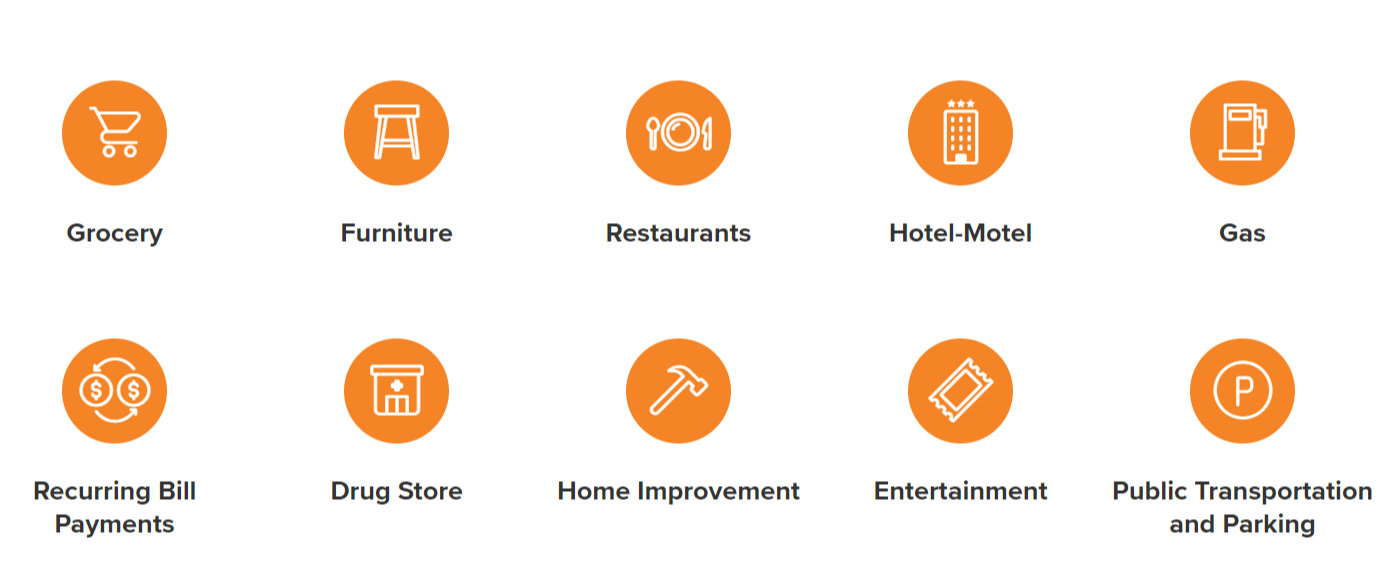
All in all, this is an excellent flexible cash back card that's good not only in terms of approval, but rewards as well.
Student credit cards
Student credit cards are accessible options for those in school, providing all the conveniences of a credit card with none of the stress of credit score or income requirements.
Most students don't have a credit history, so it's nearly impossible to get a premium credit card right off the bat. Issuers of student cards recognize this and offer cards with low or no income requirements and very low-to-no credit score requirements, helping young people get their first credit card.
Prepaid credit cards
If you have bad credit, a prepaid credit card will prevent you from ever overspending, much like a secured credit card. This is because you load money onto them beforehand.
While the best prepaid cards will offer some rewards – a bit of cash back and/or interest on your balance (like a hybrid chequing account) – they won't have any impact on your credit score.
Things to remember about credit cards for bad credit
Before you decide to apply for a credit card, here are some things to keep in mind:
- Credit cards should only be used for things you can afford or were planning on purchasing anyway. They should never be considered as extra income.
- The goal of credit card use is to develop good financial habits. This can mean setting reminders, asking someone for help, practicing self-control, etc.
- To prevent interest from accumulating, it’s best to pay off credit cards in full every month. At the very least, you should pay the minimum amount required before each due date – but remember that only paying the minimum amount each month can cause it to compound over time.
- It’s important to never miss a payment. Missed payments can cause your credit to suffer for a very long time.
FAQ
What is the easiest credit card to get with bad credit?
With no credit check or income requirements, a secured credit card is the easiest credit card for bad credit you can get. These credit cards will also help you rebuild your credit and prevent you from falling into debt.
What credit card can I get with bad credit?
If you have bad credit, your credit card options are going to be limited to secured credit cards, prepaid credit cards, or guaranteed credit cards. If you're a student, you may qualify for a student card.
What is the best credit card for bad credit?
The best credit card for this is the Neo Secured Mastercard. It requires a very low $50 minimum deposit, has no annual fee, and users earn between 1% and 5% cash back on gas, groceries, and purchases at partnering retailers.
Can I get a credit card with a 500 credit score?
Yes, you can, but it won't be a premium card. Your best bet is to get a secured credit card and, by using it responsibly and paying it off in full every month, you'll rebuild your credit over time.
What is the fastest way to build credit?
The fastest way is by getting and using a secured credit card. Acceptance is virtually guaranteed, and while these cards require a security deposit, they also report your payment activity to Canada's major credit bureaus on a monthly basis.
How can prepaid credit cards help my credit score?
Prepaid cards don't actually help your credit score, as you’re simply spending your own money when you use them. They do, however, prevent you from falling further into debt and/or worsening your credit score. Sometimes they even offer rewards.
How long does it take to rebuild credit with a secured credit card?
It depends on what's on your credit report (bankruptcy can extend it considerably), but it generally takes 12 to 18 months to rebuild with a secured credit card, which reports directly to the credit bureaus with every on-time payment.
creditcardGenius is the only tool that compares 126+ features of 228 Canadian credit cards using math-based ratings and rankings that respond to your needs, instantly. Take our quiz and see which of Canada's 228 cards is for you.




 ×1 Award winner
×1 Award winner 

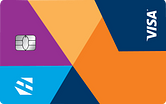

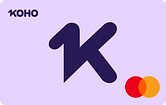

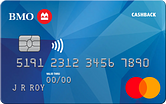

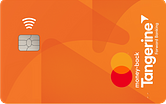


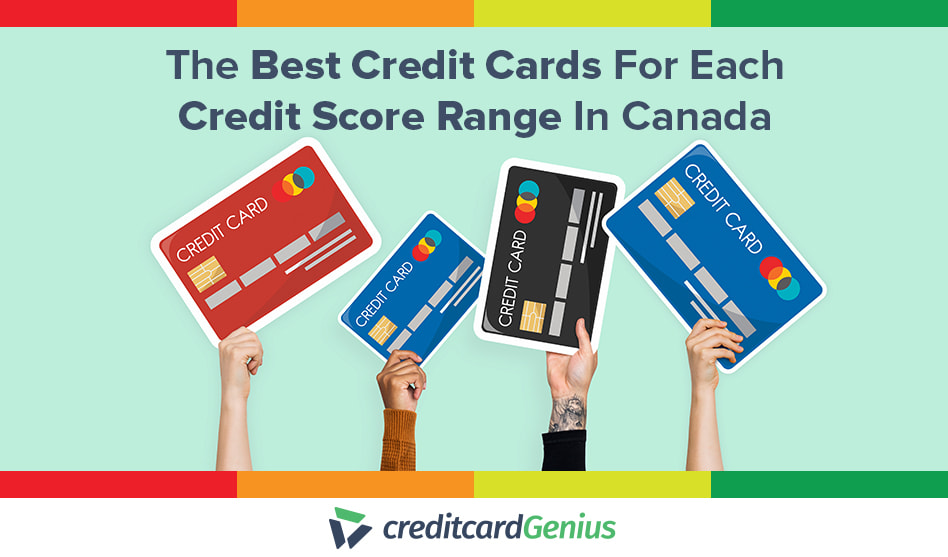
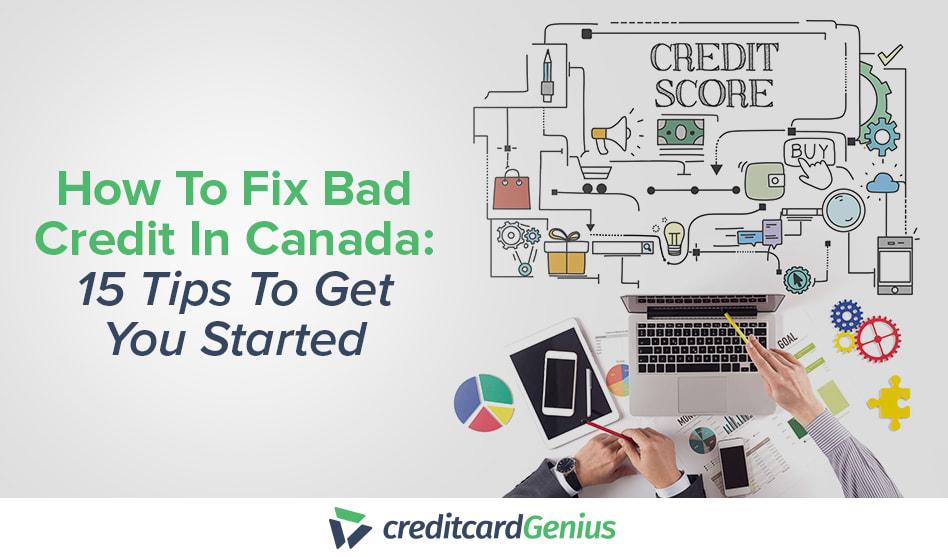
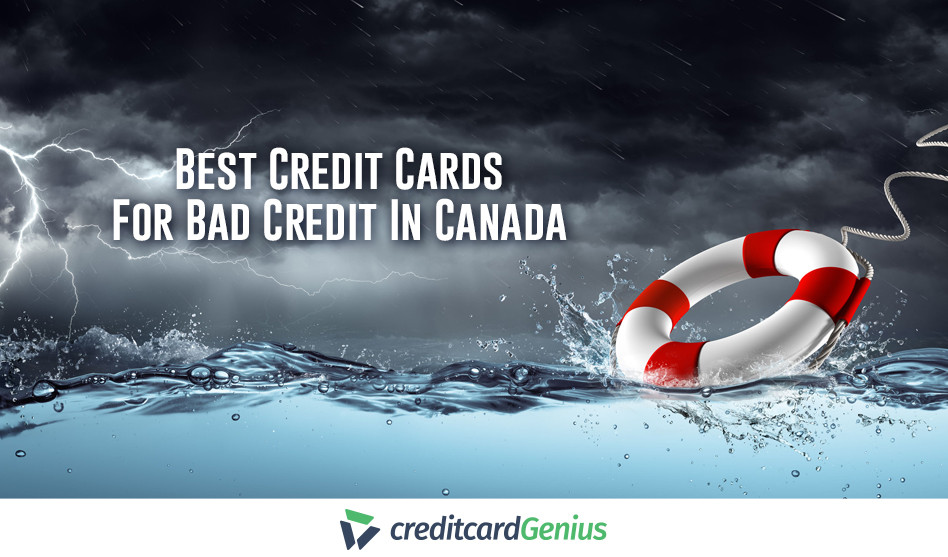










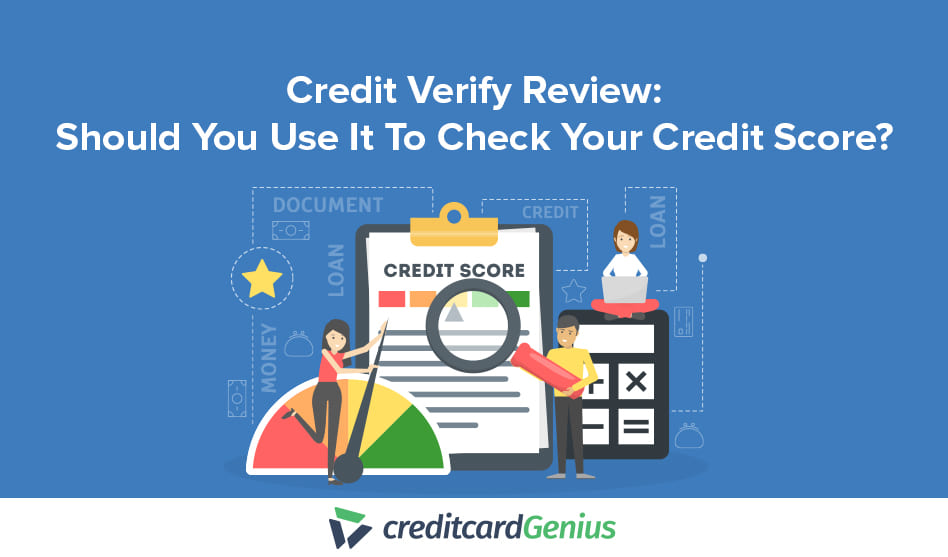
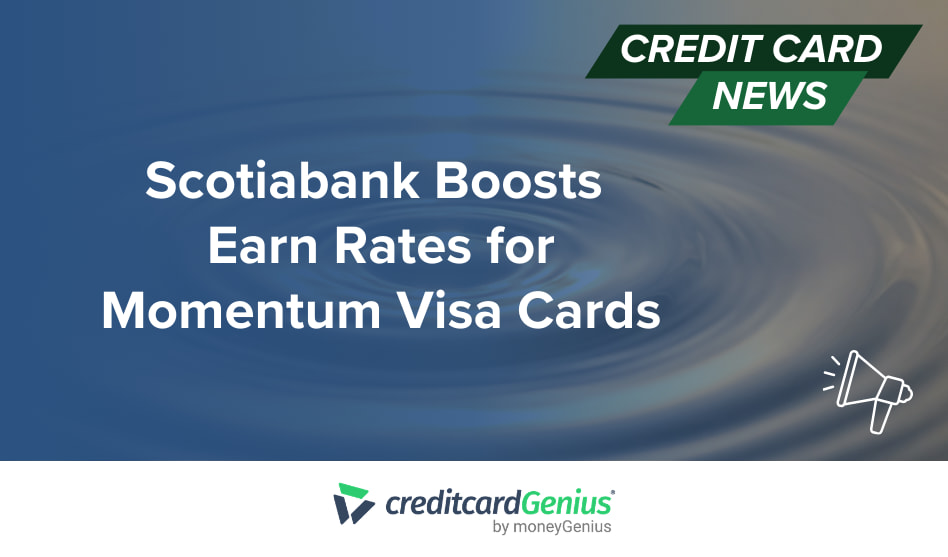

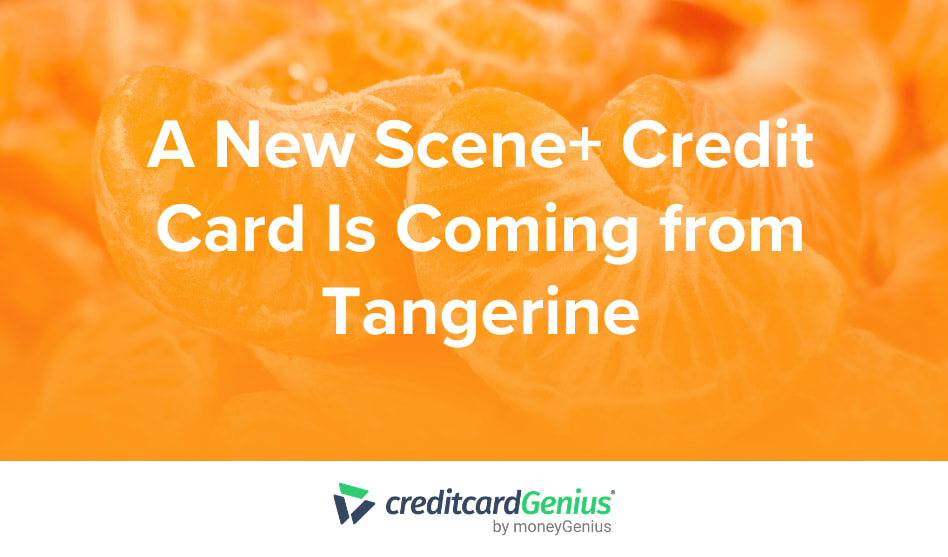




















Comments
Leave a comment
Required fields are marked with *. Your email address will not be published.
Showing 14 comments